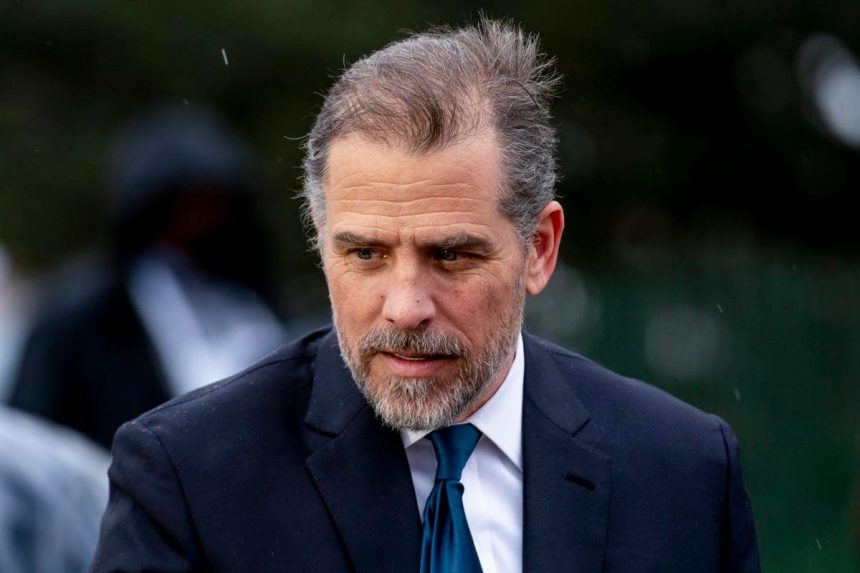After months of speculation, Hunter Biden, the son of President Joe Biden, has been charged with tax and gun charges. According to court documents, he is expected to plead guilty to two misdemeanor tax charges as part of a plea deal.
In a letter filed in federal court, the charges are docketed as “Informations.” When charges are brought on information, it usually means that the defendant has accepted the charges and is cooperating with the investigation—and that’s the case here. Notably, the letter is signed by U.S. Attorney David Weiss, who was appointed by President Donald Trump in 2018 and has overseen the Biden investigation since that time.
Tax Charges
According to the letter, Biden has agreed to plead guilty to two charges of failure to pay under section 7203 of the Tax Code. That section covers a wide variety of offenses, including:
- failure to pay estimated tax or tax;
- failure to file a return;
- failure to keep records; and
- failure to supply information.
In this case, the charges focus on failure to pay taxes for the 2017 and 2018 tax years.
Typically, failure to pay does not result in jail time. It’s considered a misdemeanor and usually results in fines of up to $25,000, though prison time of up to a year can be tacked on if the situation warrants.
According to the court documents, the tax liability was related to combined income of $3 million for those two years—$1.5 million per year. In 2021, Biden claimed to have paid the IRS what he owed. However, paying the liability after the due date (in this case, April 17, 2018, for the 2017 tax year and April 15, 2019, for the 2018 tax year) doesn’t mean a crime was not committed.
A misdemeanor failure to pay can be escalated to a felony in some cases. According to the Department of Justice manual, those involve individuals who fail to file tax returns or pay a tax “but who also commit acts of evasion or obstruction.” In that case, the charges would be brought as felonies under sections 7201 or 7212(a). That’s not the case here—likely because Biden paid the tax due and was cooperating with authorities.
This is the part of the story that often makes taxpayers worry. It’s important to understand that failure to pay is a crime under the statute. But most civil matters don’t typically become criminal investigations—though there are occasions when they may be referred for criminal investigation when there are indications of possible fraud. Criminal investigations may also be initiated when information is received from the public as well as from ongoing investigations underway by other law enforcement agencies or by U.S. Attorneys offices across the country.
IRS-CI is the criminal investigative arm of the IRS and they work closely on tax-related investigations with federal, state, and local law enforcement partners and agencies. While they may work cases that involve other financial crimes, in 2022, IRS-CI opened 1,388 investigations into what they call “pure tax” or general tax crimes. Those include cases—like this one—where they take looks at high-income taxpayers who deliberately choose not to file returns or pay taxes owed, as well as abusive tax schemes and tax-related fraud (like refund schemes). In 2022, this resulted in 789 recommendations to the Department of Justice for prosecutions and 699 sentences.
Those numbers are evidence that taxpayers who come forward on their own and those that initially cooperate with tax authorities by establishing payment programs or otherwise working to resolve their debt rarely face criminal charges. Those are typically reserved for willful cases—as here. In addition, government authorities often bring tax crime cases against high-profile individuals to prove a point (just look at Messi and the Giudices, for example).
Overall, tax crime prosecutions do not typically take up significant real estate on federal sentencing dockets. Perhaps unsurprisingly, drug offenses were the most common federal crime in fiscal year 2021, accounting for 31.3% of the total caseload.
Gun Charge
The gun charge is being handled a little differently—it’s being treated as a diversion case. This is important from a legal perspective because entering the diversion program means he is not technically pleading guilty to gun charges. Criminal possession of a gun can be considered a felony, depending on the jurisdiction, and can result in a considerable jail sentence.
However, some jurisdictions offer diversion programs for nonviolent offenders with substance abuse problems. Typically, compliance consists of the kinds of behaviors you’d associate with probation: curfew, random drug testing, and participation in substance-abuse treatment programs. A 2018 National Institute of Justice study found that participants in alternate-sentencing programs like diversion programs tended to result in reduced rates of recidivism. The prosecutor-led study also found that these programs resulted in cost savings in the judicial system.
Biden’s substance abuse issues have been widely reported. He claims that he began using in 2016, and by 2018, he wrote in his autobiography,” I was smoking crack every 15 minutes.”
That timeframe is key. According to court documents, Biden bought a Colt Cobra 38SPL revolver on or about October 23, 2018. He was using drugs at the time. The gun was later found, allegedly thrown in the trash by Joe Biden’s daughter-in-law Hallie Biden, the widow of the president’s son Beau Biden. Biden told police that he thought Hallie believed he would use the gun to kill himself.
His family staged an unsuccessful intervention in 2019, but later that year, he finally turned things around, which he credits to his wife and family.
Court Appearance
Biden will have to appear in court to answer the charges officially, and a judge must approve the plea deal. So far, no court date has been made public.
Reaction From The White House
A White House statement from spokesman Ian Sams released on Twitter said: “The President and First Lady love their son and support him as he continues to rebuild his life. We will have no further comment.”
Read the full article here









